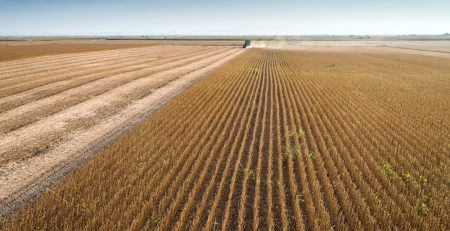Toledo Passes Lake Erie Bill of Rights, Farmers Face Litigation
Citizens of Toledo value Lake Erie, and in a recent special election more than 60% of them voted to provide extra protections for the body of water. Now any citizen can sue anyone who “causes harm” to the lake’s ecosystem.
Farmers should be concerned.
“It’s one of those things if it wasn’t so serious it would be laughable,” says Joe Cornely, director of corporate communications at the Ohio Farm Bureau. “And any citizen of Toledo who feels that something they see on a farm might be damaging Lake Erie is empowered to sue those farmers and the City of Toledo would collect the penalties. Of course, farmers would also end up paying all the legal costs for himself or herself and the city.”
This vote is 20 years in the making but rocketed to the top of Toledo’s priorities after a water safety scare in 2014. Pollution into the lake made the water unsafe to drink for a small population of the urban metropolis and since then a few active citizens made it their goal to clean up the lake.
“Since then there have been a number of, I’m sure, very well intended and very passionate Toledo [citizens] who have simplified the problem to ‘stop nutrient runoff and the lake will clean up,’” Cornely says. For five years the legislature was unconvinced until this year’s landmark vote.
While many states are in a battle over nutrients in watersheds, Ohio is the first to skip straight to litigation. States like Iowa and Illinois use nutrient reduction strategies to voluntarily clean up water, while Maryland has mandated nutrient reduction practices to keep the bay clean. This move in Ohio puts the power in the hands of its citizens, both the informed and uninformed of on-farm practices.
However, Ohio already had laws in place regulating how farmers apply nutrients and who could apply nutrients.
“We passed two pieces of legislations and are, I believe, the first in the nation to require farmers who apply nutrients to more than 50 acres to go through a state certification process,” Cornely says. “There’s training and testing involved, and you have to be certified to apply those nutrients. The second measure passed in Ohio focuses on the appropriate application in the western portion of the Lake Erie basin.”
That ballot says farmers cannot apply nutrients or manure on snow-covered or frozen ground and it precludes nutrient application when significant rainfall is forecasted. This practice is required by law, but any other nutrient reduction practices used by farmers are voluntary.
While the next few months could be nerve wracking for farmers in Ohio, there is light at the end of the tunnel.
“Even the proponents of this are forthcoming to say this probably isn’t going to stand up in court,” Cornely says. “If I’m a farmer I can take heart in the fact that this eventually will be ruled unconstitutional. The problem is that this will take a lot of time and money.”
In the immediate term farmers should be prepared for anything.
“So, conceivably someone could file a lawsuit and a farmer in northwest Ohio or any of the 35 [impacted] counties in Ohio is subject to a lawsuit almost immediately,” he adds. The areas that citizens can sue farmers and businesses encompasses about five million people and 420,000 businesses.
Content within the Farm Journal Forum is the property of Farm Journal, Inc and protected by copyright.This article was first published on https://www.fjfnews.com.








